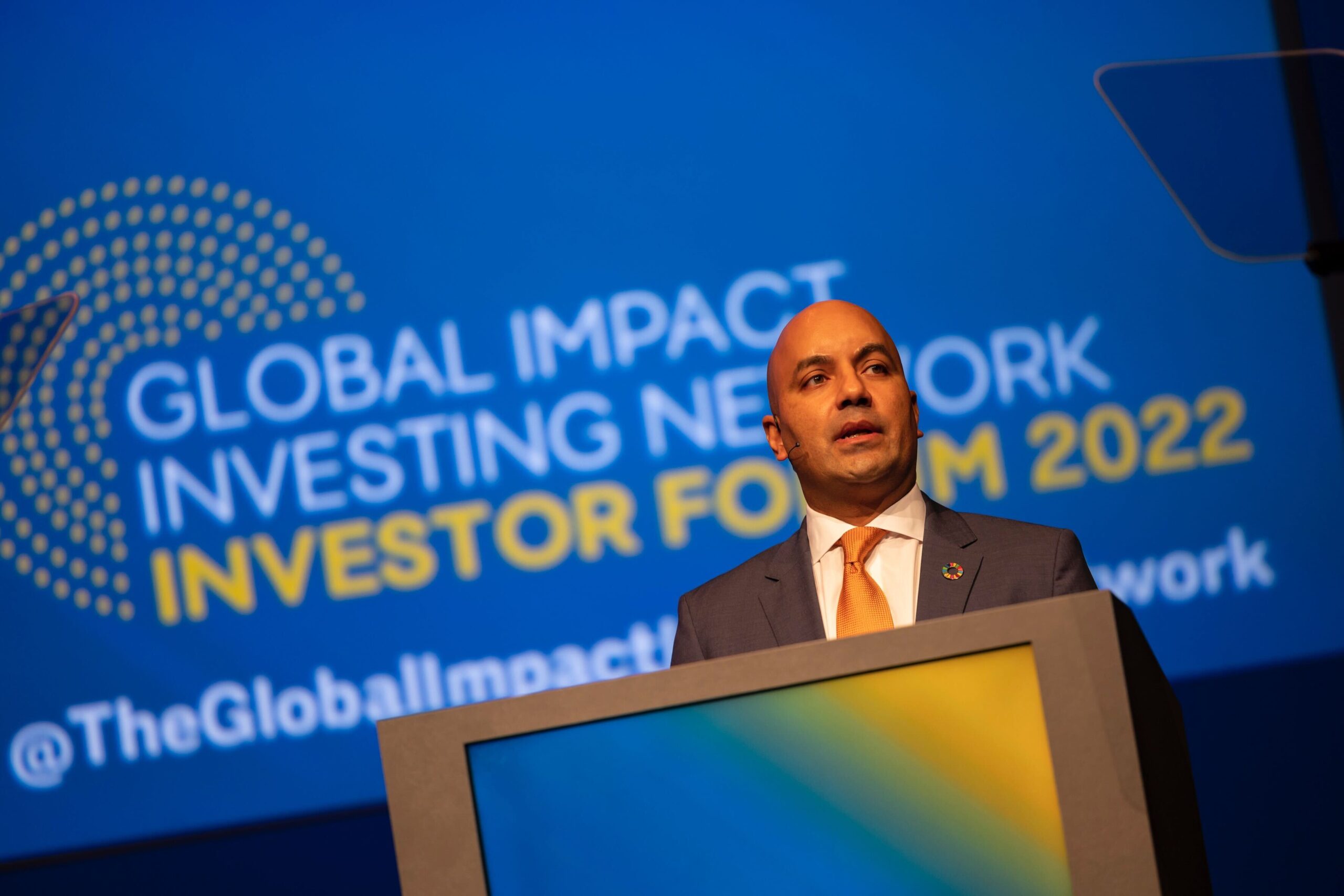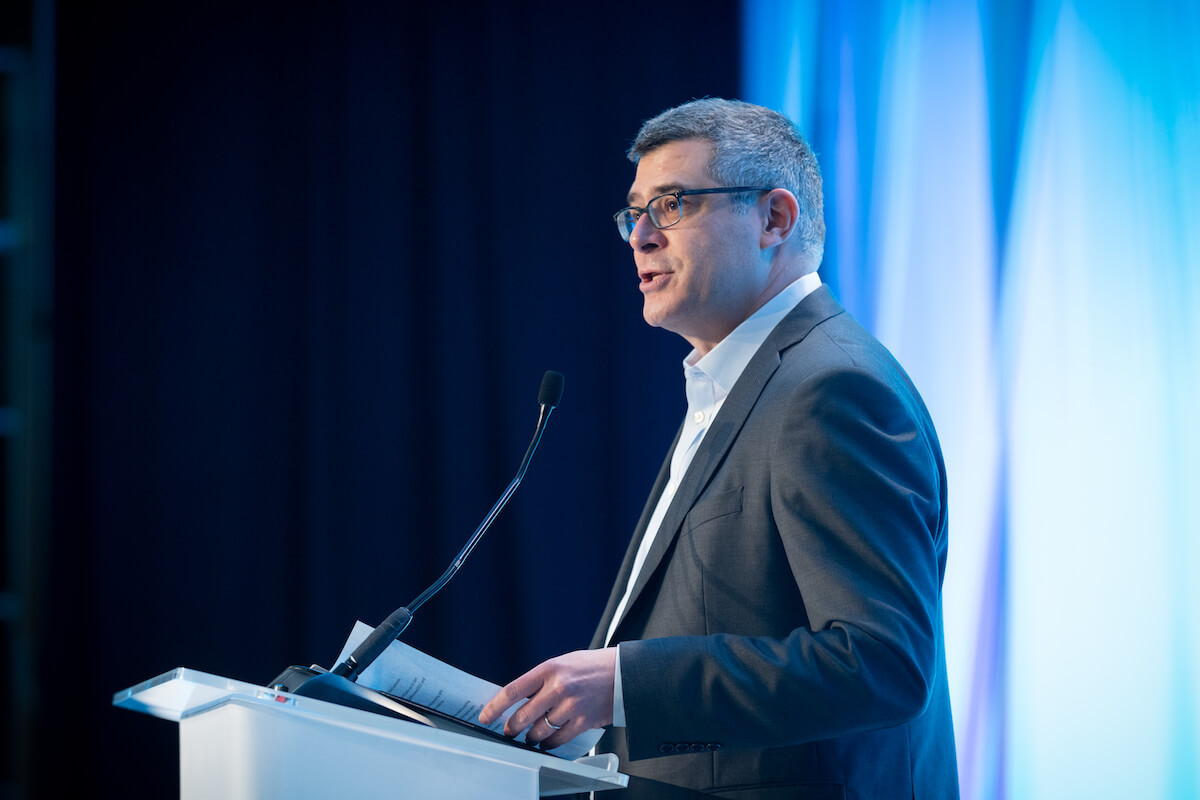When I address you at the GIIN Impact Forum in Copenhagen next week, I’ll be focused on a critical element of our work: collective leadership.
Navigating the challenges and opportunities that lay ahead requires that we be both ambitious in our vision and humble in our mission for change, allowing us to listen to one another and collaborate together.
On October 4th and 5th, the Global Impact Investing Network will be convening the world’s leading impact investing experts and practitioners. This year’s forum offers attendees opportunities to dive deep into the industry’s most pressing topics. The topics we will be covering were chosen by you, the impact investors.
Let me share some reflections on the themes we will be exploring and what attendees can expect.
Big transitions
One of the biggest takeaways from our recent 2023 GIINsight reports: the impact investing industry is at a crucial inflection point. Several promising trends impact investors have shared include:
- Institutional impact. The diversity of investors directing their capital to impact investing is increasing, particularly among pension funds and insurance companies which, as a group, is the fastest-growing source of capital, growing by a compound annual growth rate (CAGR) of 32% between 2017 and 2022.
- Emerging shift. According to the investors we surveyed this year, they plan to allocate more capital to sub-Saharan Africa (56%), Latin America & Caribbean (48%), Southeast Asia (42%) and South Asia (40%) over the next five years, underscoring a desire to invest in emerging markets.
- Growth sectors. Impact investors also plan to increase their investments in vital sectors such as energy (69% of survey respondents), food & agriculture (60%), infrastructure (59%), water, sanitation and hygiene (56%), forestry and timber (53%), and healthcare and housing (48%).
- Talent pipeline. 86% of investors indicate progress related to professionals possessing the relevant skillsets required for the industry.
These trends highlight the broader transformations that impact investors actively lead by prioritizing investments that generate positive impact for both people and the planet.
Despite these encouraging developments, we face significant headwinds that hinder progress and results. Economic volatility, the climate and biodiversity crises, racial and socioeconomic injustices, and economic inequality continue to pose significant hurdles. Impact investors are responding by investing in solutions to address these challenges.
At the forum, some of our session centered on big transitions include, “Seeing the forest for the trees: Adding diversification by investing in climate and nature,” “Untapped opportunities: Investing in the Global South,” and “From margins to mainstream: Scaling inclusive tech in emerging markets,” to name a few.
Bold Solutions
At the forum, we’ll also unpack how investors can prioritize climate across their portfolios – another trend covered in our most recent 2023 GIINsight report on emerging trends. Our research indicates impact investors are pursuing a climate solutions-oriented approach across their portfolios in a wide variety of sectors, including agriculture, transportation and energy.
More investors are designing novel approaches, such as catalytic capital, to scale climate solutions and activate capital not currently allocated towards impact.
Be sure to check out our “Climate solutions for the low-income consumer: An inclusive transition to a low carbon economy” and “Scaling circular economy solutions to radically transform our systems: Idealism versus pragmatism” to explore these kinds of bold solutions.
Collective power
As the impact investing industry continues to grow, we have an opportunity to use our collective voice to drive change. We cannot just focus on our individual pieces of the puzzle; instead, we must work collaboratively to understand the broader picture fully.
For example, while impact investors recognize that understanding impact performance is crucial for the industry, there is a clear need for reliable and widely adopted impact analytic tools to inform data-driven decision-making. By directing our collective efforts to build meaningful industry infrastructure, we can create a ‘race to the top’ for impact performance and crowd in new investors.
Two sessions, “What’s next in climate investing?” and “Designing a practitioner guide for impact management now,” will identify how we can work collectively to move the needle on important topics like climate change and impact measurement and management.
Systemic change
At the heart of our efforts is the need for a dominant investment theory that accounts equally for risk, return and impact.
Our goal should be clear: in the foreseeable future, all investors must actively invest in a healthy planet and a fair, inclusive economic system. We cannot build a sustainable future unless we change the way the world invests. We’re seeing promising signs that more institutional asset owners, particularly pension funds and insurance companies, are becoming increasingly supportive of and aligned with impact investing, an indication that we’re at a critical juncture in how finance and, more broadly, our economy operates.
All investors must begin to look at impact as a lens through which all their investment decisions are made. Impact investing has come a long way since its inception, having grown to an over $1 trillion industry. Now is the time we reorient impact so that every financial decision, whether it involves individual retail investors or large institutions, is evaluated through an impact lens.
We are pleased to welcome institutional asset owners to this year’s forum. During our sessions, “Impact as a Lens,” and “Asset owner trends and approaches,” institutional asset owners will share their experience applying an impact lens to their portfolios and how we as an industry can create more opportunities for them to allocate capital to impact.
Scaling with integrity
As we embark on our own journeys to the 2023 GIIN Impact Forum and reflect on the journey ahead despite its challenges and opportunities, we must remember the urgency and importance of our work.
If not now, when? If not us, who?
Together, we can drive big transitions, invest in bold solutions, tap into our collective power and create lasting, systemic change. I look forward to seeing you in Copenhagen.











